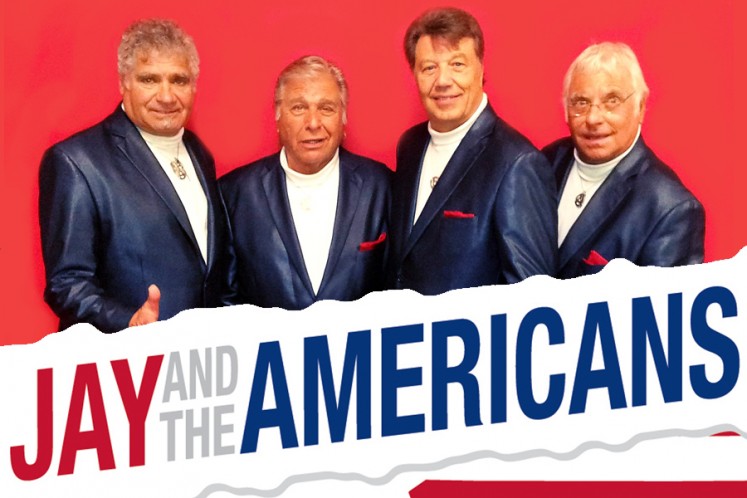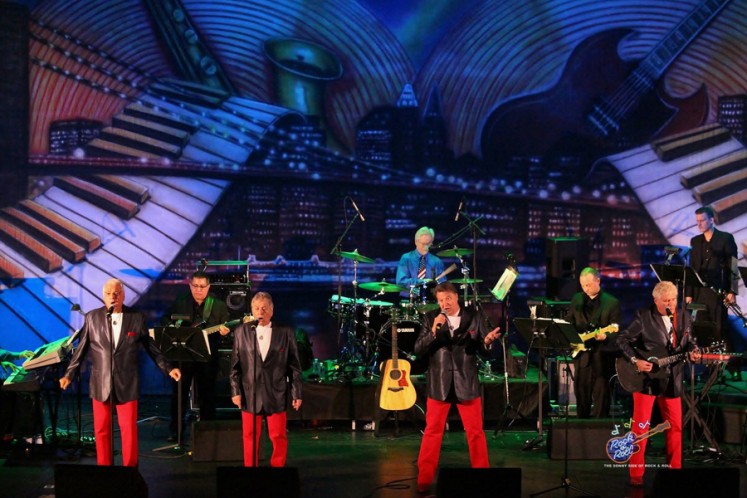Jay and the Americans
Jay and the Americans were one of the original blue-eyed soul groups, although many fans may not know that this popular group almost had to go through life as Binky Jones and the Americans.
Sandy Deanne, one of the original kids from Brooklyn, went with friends Jay Traynor, Howie Kane, and Kenny Vance to meet Jerry Leiber and Mike Stoller, two of the biggest songwriters of the day, with big hits for Elvis, the Drifters and the Coasters. Their office had gold records all over the walls. Deanne and his friends, who were in their late teens, hoped that the legendary pair would take them on.
“We dreamed we could be with them,” Deanne said in an interview. “We lucked out and they liked us. We were the first white act they signed themselves, as Col. Parker brought Elvis to them. They liked our harmonies and Jay’s vibrato. They said we were clean-cut and a little bit soul.”
The only problem was that Leiber and Stoller named them Binky Jones and the Americans. The guys hated it, but were too intimated to say anything. They finally worked up the courage to ask for another name. Leiber and Stoller wanted “the Americans” in the title with an all-American name in front. They came up with Jay and Jay and the Americans was born.
The group went on to have 12 top-10 records including “This Magic Moment,” “Only in America,” “She Cried,” “Come a Little Bit Closer.” and “Cara Mia.” They were inducted into the Vocal Group Hall of Fame in 2002 and played Madison Square Garden 18 times, a highlight of their career.
“Selling out Madison Square Garden, you never forget,” Deanne said. “There were kids screaming our names. It was mind-boggling and we never dreamed it would happen. It was a wonderful thing. We came off stage bewildered because the audience was standing and screaming.”
Today, the band has Deanne, Howie Kane, Marty Sanders and Jay Reinecke, the third “Jay” in the band’s history. They never thought, as 18 year olds, that 54 years later they would still be performing for screaming crowds. They love touring and going to smaller towns that they never played the first time around.
“They call it oldies,” Deanne said. “To me, it’s mental memorabilia and it’s valuable. We’re building new memories, which is nice.”




